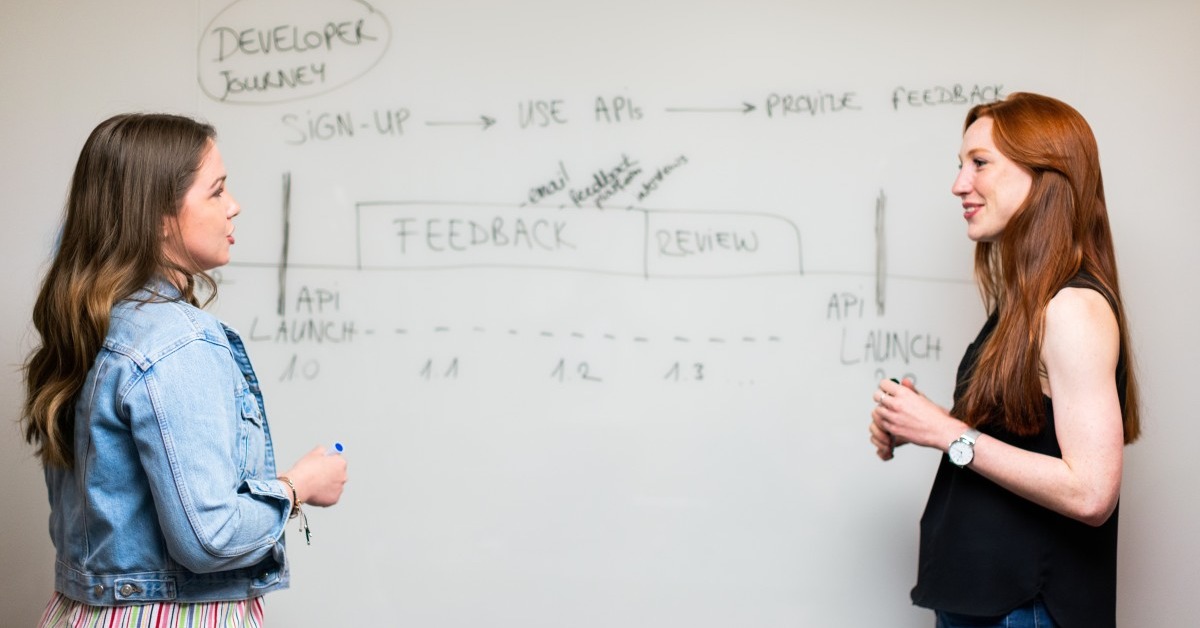
How to Become a Licensed Mental Health Social Worker
We explain the steps necessary to become a licensed mental [...]

Social work encompasses a broad range of service areas, from community advocacy to healthcare to substance abuse counseling to mental health treatment. As you plan your social work career, consider the likelihood that you will specialize in one of these areas. Your specialization may require licensure.
Social work is regulated at the state level; each state mandates specific requirements for its various social work licenses. That’s certainly the case in Virginia, where the Board of Social Work—one of 13 health regulatory boards within the state’s Department of Health Professions–regulates nearly 11,000 social work practitioners. Virginia requires a license to practice social work in any non-exempt (i.e., for-profit) setting.
If you’re considering pursuing a social work license in Virginia, you need to know the wheres, hows, and whys of the process. This article can get you started by addressing these issues:
Social work licensure is a documentation process that allows social workers to work in regulated professions. Many social work fields require specialized knowledge and skills. The licensure process—which certifies that applicants hold the appropriate academic credentials and required training, and which may require passing an examination—ensures that licensees are qualified to practice.
Virginia issues three social work licenses: the Licensed Bachelor of Social Work (LBSW), the Licensed Master Social Worker (LMSW), and the Licensed Clinical Social Worker (LCSW). The LBSW is a case management license. The LMSW allows clinicians to practice under senior social worker’s supervision; holders of an LCSW can provide those same services unsupervised.
| University and Program Name | Learn More |
|
Virginia Commonwealth University:
Online Master of Social Work
|
The Virginia Department of Health Professions’ Board of Social Work oversees standards and regulations for social workers in Virginia. The state offers three social work licenses: Licensed Bachelor of Social Work (LBSW), Licensed Master Social Worker (LMSW), and Licensed Clinical Social Worker (LCSW). Virginia does not have reciprocity with any other state, which means that social workers licensed in other states must apply for a license to practice in Virginia. The state does offer licensure by endorsement for those who hold active, unrestricted licenses in other states.
Virginia is an excellent state in which to build a social work career. From its mountainous west to its eastern coast, from its densely populated urban centers to its many towns and rural localities, the state of Virginia offers abundant opportunities to the aspiring social worker. The state also boasts a growing social work labor market: according to the Bureau of Labor Statistics, the number of social work jobs in the state increased by 9 percent (from 16,380 to 17,860) between 2016 and 2019. Virginia’s urban regions are growing faster than the rest of the state.
The state of Virginia issues three social work licenses:
Here’s what you need to know about obtaining these licenses.
The LBSW is the lowest level of social work licensure. It is open to anyone who has earned a bachelor’s degree in social work from a Council on Social Work Education-accredited (CSWE) program. Applicants must:
Most LBSWs find employment as caseworkers, care coordinators, or community organizers.
The first step to earning your master’s-level LMSW is to get a master’s degree from a CSWE-accredited program. The steps to become an LMSW are:
An LMSW qualifies you to work in various social work settings—pretty much everything except one-on-one clinical practice. LMSWs work as case managers; administrators in social service agencies, healthcare facilities, and government agencies; and public policy advocates and activists.
The first step in earning a LMSW is earning a Master of Social Work (MSW) degree. Four Virginia schools offer on-campus social work master’s programs. Two offer the degree online, a convenient option that allows students to continue working full-time while earning their degrees. We’ve listed those two online programs along with an out-of-state online MSW program worth considering if you’re interested in disaster and trauma relief or addiction treatment:
The LCSW—required for clinical social work practice—is the highest level of social work licensure in Virginia. To receive this license, you must:
To become an LCSW or a LMSW, you will need an MSW (master’s degree in social work) from a school accredited by the CSWE. To qualify for an LCSW in Virginia, you will also need to finish a certain amount of clinical level work. In addition to education requirements, all applicants must pass the ASWB exam (national exam overseen by the Association of Social Work Boards).
On average, a student who completes 3,000 hours of supervised fieldwork can expect to receive their license in two to three years.
| Fee | Amount |
| Registration of Supervision | $50 |
| Application Processing: Licensed Clinical Social Worker | $165 |
| Application Processing: Bachelor’s Level Licensed Social Worker | $100 |
| Application Processing: Master’s-Level Licensed Social Worker | $115 |
License reciprocity is a system that allows professionals to earn licenses in one state based on having a similar license in another state. Virginia does not have reciprocity with any other state. However, Virginia does offer licensure by endorsement. This allows social workers licensed in another state to secure a Virginia license by completing an online application, verifying an active social work license in another state, providing ASWB exam scores, and meeting the Virginia Board of Social Work’s educational and training requirements for LSW or LCSW licensure.
In 2020, the median salary for a licensed social worker in Virginia was $52,551. Early career professionals with between zero and two years of experience earn an average salary of $45,900, while those with three to five years of experience averaged $58,400.
| Degree | Average salary in Virginia for a licensed social worker |
| Bachelor’s degree | $41,600 |
| Associate’s degree | $66,000 |
| Master’s degree | $57,000 |
| Doctoral degree | $63,500 |
Clinical case manager (3,234)
Mental health/behavioral counselor (2,899)
Family/school/general social worker (2,066)
According to Labor Insight, the top municipal areas for social work jobs in Virginia are:
| Metro Area | Median Salary | Job postings in the last 12 months |
| Virginia Beach-Norfolk-Newport News, VA-NC | $53,000 | 1,039 |
| Richmond, VA | $53,000 | 951 |
| Washington-Arlington-Alexandria, DC-VA-MD-WV | $58,000 | 900 |
| Roanoke, VA | $43,000 | 107 |
| Charlottesville, VA | $50,000 | 78 |
| Lynchburg, VA | $42,000 | 78 |
| Harrisonburg, VA | $49,000 | 54 |
| Winchester, VA-WV | $40,000 | 43 |
| Blacksburg-Christiansburg- Radford, VA | $36,000 | 26 |
| Kingsport-Bristol-Bristol, TN-VA | $34,000 | 23 |
Licensed social workers must renew their license every two years and complete 15 continuing education hours throughout the renewal period. Licensed clinical social workers must complete 30 hours. In 2020, LSW renewal fees were $65, and LCSW fees were $90.
Social work associations afford Virginia social workers the opportunity to share experiences and network. The two social worker associations you can join in Virginia are:
Earning your social work license in Virginia allows you to provide supportive services as a highly trained professional and opens up more employment and networking opportunities. With a growing population and an expanding social work job market, Virginia offers an excellent location to start or build a social work career.
Questions or feedback? Email editor@noodle.com

We explain the steps necessary to become a licensed mental [...]

Domestic violence call centers in the US field 20,000 calls [...]

Getting an MAT or an MEd in Elementary Ed can [...]

As a math teacher, you may qualify for higher pay [...]

Social work leaders oversee organizations and work in advocacy roles [...]
Categorized as: Social Work, Social Work & Counseling & Psychology